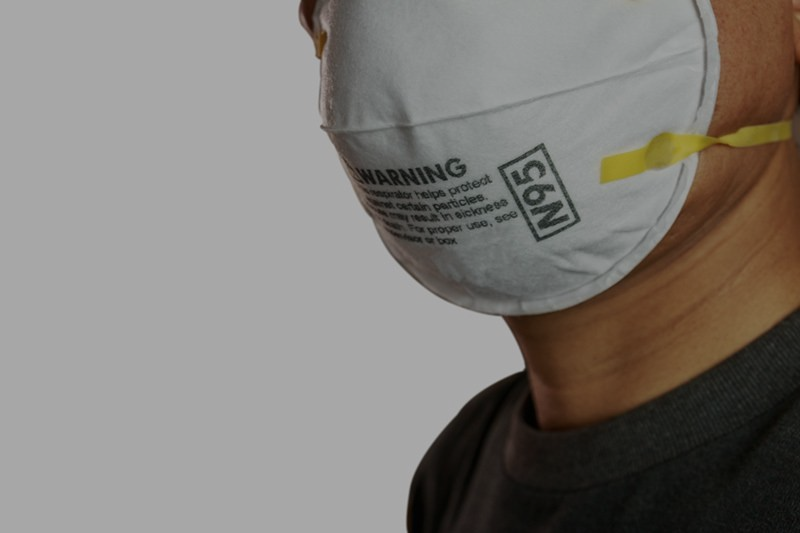Supplies Made Simple™: Talk to our Sales Team today!
The ultimate guide to protective gloves
Gloves have long been regarded as one of the crucial components of personal protective equipment (PPE) required in industrial and medical settings. They have long protected workers from injury and health hazards. Now that we are in the middle of the pandemic brought by the novel coronavirus, the demand for gloves has dramatically increased as more and more industries have required the usage of this safety gear.
According to the World Health Organization, there are two main instances, medically speaking, wherein wearing gloves is necessary. Gloves should be worn to reduce the risk of contamination when handling bodily fluids or specimens. They should also be worn to lower the chances of germ distribution from one person to another. For the general public, wearing gloves is recommended but not so vital as to be considered non-negotiable.
In a regular workplace, the usage of gloves can be set aside provided that employees practice preventive action like social distancing and the frequent, thorough washing of hands with soap and water. The Centers for Disease Control and Prevention (CDC) mentioned that unnecessary wearing of this PPE may result in a waste of resources and can affect the supply chain for medical providers. However, some entities still recommend wearing gloves, especially in areas where there is a high risk of contamination.
There are many different types of gloves to choose from. Many are interchangeable in common scenarios, but knowing the advantages and limitations of each kind can help you decide which glove best fits your needs.
Latex Gloves
Latex gloves are commonly made from natural or synthetic rubber. They cover the whole hand and are used to protect the person wearing them from damaging environmental influences. General Purpose Gloves are utilized within sectors such as salon/spa, janitorial, automotive, and food handling, some having specific ASTM standards. On the other hand, Medical or Exam Grade Gloves are intended for use during the facilitation of medical examinations, surgery, treatment such as chemotherapy, and other types of scenarios that may cause exposure to bacteria or viruses. Both types are intended for single-use and should be discarded immediately after.
Latex gloves provide the most effective protection against bacteria, viruses, and body fluids; that is why it is used most commonly in the medical field unless there is a latex allergy. They are exceptionally flexible and have a high tensile stretch, which means they can be pulled at both ends in extended lengths without breaking. It also does not affect the sense of touch of the person wearing it. The downside to latex gloves is that they cannot be used with organic soils, oils, gas, or grease. This is because these materials can break latex down, making it brittle. More and more people suffer from latex allergies and as a result.
Nitrile Gloves
The glove material for this type is a synthetic rubber called Nitrile, which is good for use with chemicals and being more puncture-resistant. It is a synthetic, reprocessed version of latex for those with allergies but still contains comfort and flexibility to the user. They are often used in food preparation, janitorial/maintenance functions, industrial, tattoo parlors, and definitely in the healthcare field. Nitrile gloves are biodegradable, waterproof, greaseproof, and oilproof. They also have ASTM standards for many useful purposes.
Common advantages of Nitrile gloves include a long shelf life (typically 5 years), moderate protection against pathogens, is comfortable to use as it is soft and flexible, and it can handle even temperatures. Tears can also be easily detected with this type. This type of glove is a bit more rigid than latex, so touch sensitivity is slightly decreased but it is also more expensive to produce.
Vinyl Gloves
Vinyl gloves the least expensive option for gloves that can be used for medical purposes. This is used mostly for healthcare, industrial, food preparation, or cleaning and maintenance. When unused, the shelf life is about 5 years. Vinyl gloves are known to be lightweight and have an average resistance against chemicals, but have the least amount of stretch and flexibility. They can be used in low-heat settings.
Poly Gloves
Polyethylene Gloves are the best glove choice for kitchen tasks such as tossing salad and slicing deli meat. They are the cheapest option for gloves when it comes to disposable gloves and is latex-free. This is not typically a good option for medical or industrial and offers little protection against pathogens.
Reusable Gloves
Often referred to as industrial or heavy-duty gloves, reusable gloves offer exceptional protection and are likely to stand the wear and tear of the job, including the handling of chemical and hazardous materials but they are not as effective in medical settings. They are made out of thicker and durable materials but are not as flexible as disposable gloves and can be made from a variety of materials. The life of reusable gloves is longer provided that they are washed, dried, and stored appropriately every after use. When they are used with toxic substances, they should be cleaned thoroughly to prevent cross-contamination and injury. This type of gloves should be discarded as soon as early signs of damage appear. If they become contaminated beyond regular washing or by something toxic, proper disposal is advised.
When it comes to the subject of choosing the right gloves, it pays to analyze the function it is for. Some may be more expensive but it covers full protection especially on jobs that would have exposure to the virus.






